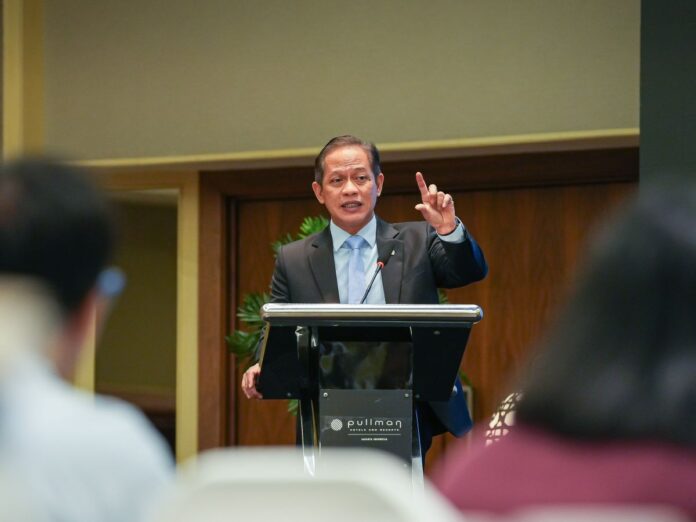Ecobiz.asia – Indonesia’s Minister of Environment Hanif Faisol Nurofiq urged swift implementation of the Mutual Recognition Arrangement (MRA) on carbon trading with Japan, a deal that links Indonesia’s Emission Reduction Certificates (SPEI) with Japan’s Joint Crediting Mechanism (JCM).
Hanif said the operationalization of the MRA is crucial to advancing carbon market transactions under Article 6 of the Paris Agreement.
“We must immediately finalize the operational framework of the MRA between SPEI and JCM Japan so that project proponents can start receiving their carbon certificates,” Hanif told a follow-up meeting on the MRA’s implementation in Jakarta on Thursday (Sept 18, 2025)
The MRA was launched on Nov. 12, 2024, during the COP29 climate conference in Baku, Azerbaijan. It enables both countries to mutually recognize their carbon crediting systems – Indonesia’s SPEI and Japan’s JCM.
Hanif said he hopes the agreement can be put into practice quickly so that the first carbon certificates can be published at COP30 in Belém, Brazil, this November.
Currently, Indonesia has around 60 JCM projects ready for certification, covering activities ranging from waste management and renewable energy to transportation and forestry.
“These JCM projects are what we are preparing for certification once the MRA process is finalized,” Hanif said.
Key technical issues still under discussion include emission reduction measurement methodologies, reporting frameworks, registry systems, and verification mechanisms.
Beyond Japan, Indonesia has also forged a bilateral carbon partnership with Norway under the Norwegian Article 6 Climate Action Fund (NACA), covering 12 million tonnes of CO₂ equivalent for 2026–2035. The country is also exploring similar deals with the United Kingdom, Sweden, Denmark and Finland.
Indonesia is at the same time pursuing recognition agreements with international carbon standards, including Gold Standard, Plan Vivo, Global Carbon Council (GCC), Verra and Puro Earth.
Ary Sudijanto, Deputy for Climate Change Control and Carbon Economic Value Governance at the ministry, said MRAs play a strategic role in strengthening Indonesia’s carbon market.
“MRAs are designed to build trust in accreditation outcomes, boost trading volumes, facilitate international cooperation on carbon, and minimize market barriers,” Ary said. ***





